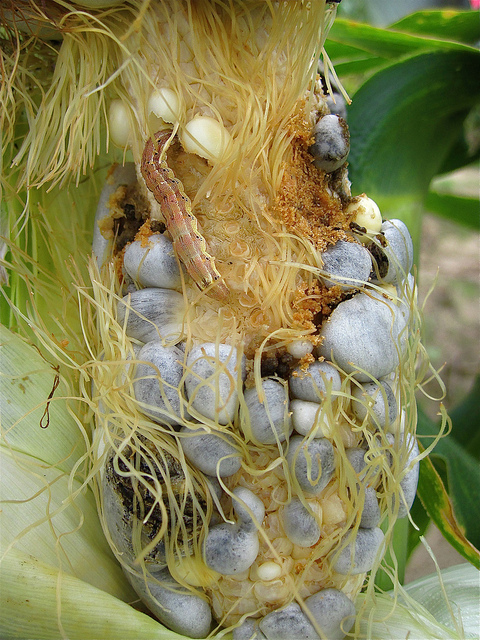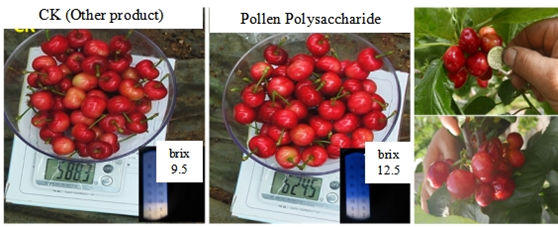Opportunity to Fast-Track Register Insecticides in Brazil Widens

A corn earworm feeds on a corn cob infected with corn smut (blue kernels).
Photo credit: U.S. Department of Agriculture
The Helicoverpa armigera caterpillar outbreak prompted Brazilian Agriculture Minister Antonio Andrade to declare emergency in a fifth state last week.
In addition to Mato Grosso, Bahia, Goiás and Minas Gerais states, the northeastern state of Piauí can now import pesticide products with the active ingredient emamectin benzoate to control the pest, which is also known as cotton bollworm and corn earworm. Helicoverpa is estimated to have inflicted billions of dollars in damage to corn, cotton, soybeans and dozens of other crops since Brazil’s farmers first reported infestations in December 2012.
Fabio Domingues, director of the regulatory consultancy Vigna Brasil, told Farm Chemicals International, “For sure, the Helicoverpa issue has opened a big window of opportunity to register insecticides in a very fast track, and many local and international companies are using this way to bring new (and old) technologies to our market.” Domingues said that companies seeking to import pesticides under the state of emergency should prepare and submit their dossiers to the authorities within the next two years in order to receive final registrations.
The area in Piauí affected by the plague covers the municipalities of Alvorada Gurguéia, Antonio Almeida, Baixa Grande do Ribeiro, Barriers Piauí, Bom Jesus chain Cristalândia Piauí, corrals, Gilberton, Guadeloupe, Jerumenha, Landri Sales, Mark Parente, Monte Alegre Piaui, Piaui Palm, Piracuruca, Porto Alegre Piauí, Regeneration, Redemption Gurguéia, Ribeiro Gonçalves, Santa Filomena, Sao Goncalo Gurguéia, Sebastian Barros, Sebastian Leal and Uruçui.
The outbreak led Brazilian President Dilma Rousseff to sign a bill on Oct. 28 authorizing the Minister of Agriculture to establish the necessary measures to control agricultural pests or diseases under officially declared phyosanitary or zoosanitary states of emergency. The law permits the temporary import of pesticides, provided it meets certain technical criteria, the Ministry of Agriculture said.






